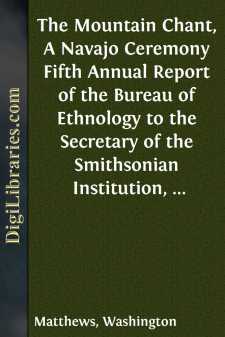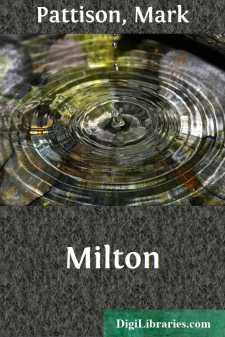Non-Classifiable
- Non-Classifiable 1768
Non-Classifiable Books
Sort by:
by:
Brillat-Savarin
The excellent man to whom we are indebted for this book has described himself, with so much charm, nature and truth; the principal events of his life have been recorded in such an agreeable and faithful manner that very few words will suffice to finish the story. Brillat Savarin (Anthelme) Counsel of the Court of Cassation, member of the Legion of Honor, member of the Society for the Encouragement of...
more...
NECESSITY FOR TESTING BOILERS. A boiler test is necessary in order to determine how well the boiler is doing the work expected of it; that is to say, we must find out whether we are wasting coal in making steam and how much this waste may be. Such a test may be made to discover the efficiency of the boiler, or the quantity of water it is evaporating, or the cost of evaporating 1,000 pounds of water....
more...
INTRODUCTION. 1. The ceremony of dsilyÃdje qaçàl, or mountain chant—literally, chant towards (a place) within the mountains—is one of a large number practiced by the shamans, or medicine men, of the Navajo tribe. I have selected it as the first of those to be described, because I have witnessed it the most frequently, because it is the most interesting to the Caucasian spectator, and...
more...
CHAPTER I There is an old fairy story concerning a pea which a princess once slept upon—a little offending pea, a minute disturbance, a trifling departure from the normal which grew to the proportions of intolerable suffering because of the too sensitive and undisciplined nervous system of Her Royal Highness. The story, I think, does not tell us much else concerning the princess. It does not tell us,...
more...
by:
Mark Pattison
CHAPTER I. FAMILY—SCHOOL—COLLEGE. In the seventeenth century it was not the custom to publish two volumes upon every man or woman whose name had appeared on a title-page. Nor, where lives of authors were written, were they written with the redundancy of particulars which is now allowed. Especially are the lives of the poets and dramatists obscure and meagrely recorded. Of Milton, however, we know...
more...
The earliest records of the administration of the post office in Canada bear date 1750, at which period the celebrated Benjamin Franklin was Deputy Postmaster General of North America. At the time of his appointment the revenue of the department was insufficient to defray his salary of £300 per annum; but under his judicious management not only was the postal accommodation in the Provinces...
more...
by:
John Albee
For so many years Bellingham has had its abode in my fancy that I find it hard to associate the town with a definite geographical location. I connect it rather with the places of dreams and wonderland; the lost cities of the Oxus and Hydaspes, the Hesperian Gardens and those visionary realms visited and named by poets. My birthplace grows unfamiliar when I take down an atlas and run my finger over the...
more...
CHAPTER I The Universal Need For Sales Knowledge Analysis of Secret of Certain SuccessThe Secret of Certain Success has four principal elements. It comprises: (1) Knowing how to sell (2) The true idea (3) Of one's best capabilities (4) In the right market or field of service. Your success will be in direct proportion to your thorough knowledge and continual use of all four parts of the whole...
more...
by:
Evelyn Underhill
CHAPTER I THE CHARACTERS OF SPIRITUAL LIFE This book has been called "The Life of the Spirit and the Life of To-day" in order to emphasize as much as possible the practical, here-and-now nature of its subject; and specially to combat the idea that the spiritual life—or the mystic life, as its more intense manifestations are sometimes called—is to be regarded as primarily a matter of...
more...
INTRODUCTION. Thomas De Quincey is one of the eccentric figures in English literature. Popularly he is known as the English Opium-Eater and as the subject of numerous anecdotes which emphasize the oddities of his temperament and the unconventionality of his habits. That this man of distinguished genius was the victim—pitifully the victim—of opium is the lamentable fact; that he was morbidly shy and...
more...











